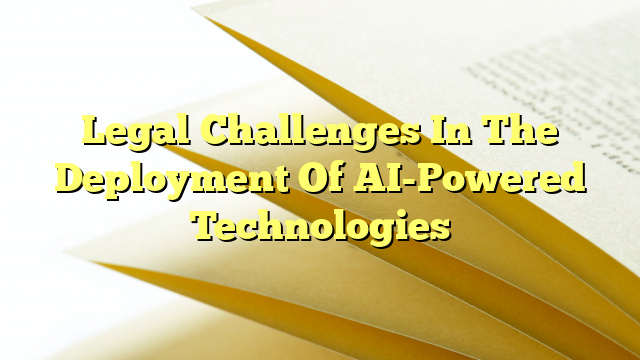Table of Contents
- Introduction
- Legal Challenges with AI
- Legal and Ethical Issues with AI
- Legal Impact of AI
- Disadvantages of AI in Legal Industry
Introduction
AI-powered technologies are rapidly changing the way humans interact with the world, potentially revolutionizing the way we work and live. As the possibilities of AI become more and more real, it is increasingly important to understand and address the legal challenges that may arise from its deployment. AI has the potential to revolutionize entire industries, including the legal sector, and the risks associated with its use must be taken into consideration. This article will discuss the legal challenges posed by AI, the legal and ethical issues associated with its deployment, and the potential legal implications of its use.
Legal Challenges with AI
The legal challenges associated with the deployment of AI-powered technologies can be divided into two main categories: the regulation of new technologies and the potential for bias in AI systems.
Regulating new technologies is a difficult task, as existing laws may not be applicable to AI-based systems. This can lead to legal uncertainty and difficulties in determining responsibility in the case of a dispute. As AI systems become more complex, it may become increasingly difficult to determine who or what is responsible for certain decisions made by the system. In addition, existing laws may not be adequate to address issues such as privacy and data protection, which are increasingly important as AI systems become more widespread in our lives.
The potential for bias in AI systems is another legal challenge that must be addressed. AI systems are only as good as the data they are given, and if the data used to train the system is biased, then the system itself will be biased. This can lead to unfair outcomes and discrimination, with marginalized groups being disproportionately affected. It is therefore important to ensure that data used to train AI systems is unbiased and representative of all groups in society.
Legal and Ethical Issues with AI
In addition to the legal challenges posed by AI, there are also a number of ethical issues that must be considered. AI-powered systems can be seen as a form of artificial intelligence, and as such, there are questions as to whether they should be given the same rights and protections as humans. This could include the right to privacy or the right not to be discriminated against. In addition, it raises the question of who is responsible for the decisions made by AI-powered systems, and whether those decisions can be held accountable to a certain standard.
Legal Impact of AI
The legal impact of AI is still relatively unknown, but it is likely to be far-reaching. AI-powered systems can have a significant impact on the way we interact with the world, and the way we do business. As such, it is important to ensure that laws and regulations are in place to protect individuals and businesses from potential abuses of AI-powered systems. In addition, it is important to ensure that the data used to train AI systems is accessible and can be held accountable by the public.
Disadvantages of AI in Legal Industry
The deployment of AI-powered technologies in the legal industry has the potential to increase efficiency and reduce costs, but there are also potential disadvantages to consider. One of the most significant concerns is the potential for bias in AI systems, which can lead to unfair outcomes for marginalized individuals or groups. In addition, the use of AI could lead to a decrease in the number of legal professionals needed to perform certain tasks, which could have an adverse effect on the labor market. Finally, it is important to consider the potential ethical implications of using AI systems, as these could have long-term consequences for society.

